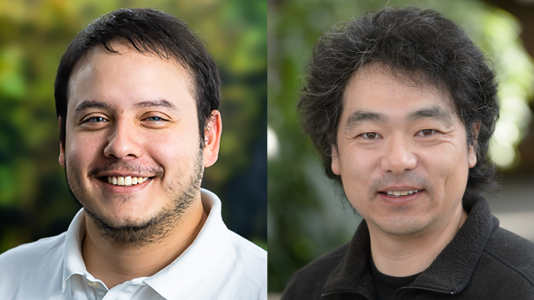
Jose M Monsalve Diaz is a postdoctoral appointee exploring innovative ideas on future computer architectures. His LDRD Expedition project seeks to implement OpenMP support for the Graphcore architecture. OpenMP is already used for many applications, but it does not provide full support in artificial intelligence (AI) accelerators. Graphcore is a computer company that has introduced a massively parallel platform using intelligence processing units, or IPU chips, that comprise hundreds of thousands of processor cores aimed at artificial intelligence workloads. Using the Graphcore popc compiler, Monsalve Diaz plans to offload simple OpenMP programs into the Graphcore architecture, benchmarking and testing small applications. The ultimate goal is to enable scientific codes to use AI accelerators in their code base.
Kazutomo Yoshii is a principal experimental systems specialist with expertise in new computer architectures. Yoshii will work with John Tramm (Computational Science division, Argonne), an assistant computational scientist and principal investigator of the Expedition project, and with Andrew Siegel (Computing, Environment and Life Sciences Directorate, Argonne), a senior scientists and Director of Applications Development for the Exascale Computing Project at Argonne. The goal of the project is to accelerate latency-bound high-performance computing (HPC) simulation workloads. Many HPC workloads require low latency to move large files between nodes quickly; but latency-boundedness occurs when the processors sit idly waiting for data. To achieve single-cycle latency, Yoshii and Tramm will leverage the Cerebras CS-2 system – considered the industry’s fastest artificial intelligence accelerator. The researchers will port a key kernel from a Monte Carlo transport algorithm to the Cerebras system, whose 40 gigabytes of on-chip static random access memory has the potential to offer orders of magnitude speedup compared with that on more traditional CPU and GPU architectures.
The LDRD Expedition Awards are given to Argonne early career researchers to encourage them to pursue new (and perhaps high-risk, high return) approaches to complex problems.